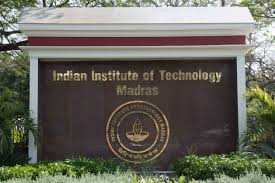
IIT Madras revolutionises a new milestone in Maritime and Coastal Technology
CHENNAI : The Indian Institute of Technology Madras (IIT Madras) has launched Asia’s largest Shallow Wave Basin Research Facility, a state-of-the-art technological milestone set to revolutionise coastal and marine engineering research in India. Located at the ‘Discovery’ Satellite Campus in Thaiyur, approximately 36 km from the main IIT Madras campus, the facility is designed to address critical challenges in India’s ports, waterways, and coastal infrastructure.
Developed under the National Technology Centre for Ports Waterways and Coasts (NTCPWC), the facility serves as a hub for cutting-edge research and technological advancements. NTCPWC, the technology arm of India’s Ministry of Shipping, supports ports, inland waterways, and maritime infrastructure through applied research, innovation, and technical expertise.
The Shallow Wave Basin features a multi-directional wave simulation system capable of replicating complex wave and current interactions. Its capabilities include simulating 3D wave impacts, sediment transport, hydraulic performance, and the effects of climate change on coastal structures. Researchers and industry stakeholders can utilise the basin for harbour, offshore, and inland waterway projects, advancing critical studies in structural stability, wave impact loading, and hydrodynamic behaviour.
Highlighting the significance of the facility, Prof. K. Murali, Department of Ocean Engineering, IIT Madras, stated, “This facility will position IIT Madras as a global leader in shallow wave basin research. We no longer need to depend on foreign technologies for simulating waves in laboratory environments.”
A standout feature of the facility is its emphasis on indigenous innovation. Prof. V. Sriram, also from the Department of Ocean Engineering, revealed that most components, including the wavemaker, were locally designed and fabricated within IIT Madras. “Except for a few items unavailable domestically, this facility is a true ‘Make in India’ success story. The architecture, design, and communication systems were developed in-house, ensuring long-term operational sustainability,” he added.
The basin’s modular design allows multiple projects to run simultaneously. With capabilities to simulate waves of significant heights and periods, as well as current circulation within the tank, the facility is adaptable to diverse research and industrial requirements.
Prof. Torsten Schlurmann from Leibniz University of Hannover, Germany – renowned for operating some of the world’s largest wave-current flumes – hailed the facility as a significant milestone in marine research. “This new facility will propel IIT Madras into the global arena of marine science and engineering, enabling groundbreaking research and fostering international collaboration across multiple disciplines,” he said.
The Shallow Wave Basin is set to play a pivotal role in addressing real-world challenges such as harbour design, floating solar plant stability, and the impact of extreme weather events on coastal structures. Additionally, it provides a platform to study climate change effects on sediment movement and erosion patterns.
This advanced infrastructure offers scalable testing capabilities, ensuring flexibility in simulating real-world conditions. The ability to test various coastal and offshore structures, including dynamic sediment interactions and hydrodynamic performances, makes it a critical asset for both academia and industry.
Moreover, the facility’s data-gathering and analysis systems are equipped with advanced sensors and AI-driven technologies, ensuring highly accurate simulations and results. This data can be shared across global research networks, fostering cross-border collaborations and knowledge exchange. It will also enable real-time monitoring of experiments, enhancing research outcomes significantly.
Looking ahead, the facility will also serve as a knowledge-sharing platform, empowering other academic institutions like IITs, NITs, and research centres across India to build similar advanced research hubs.
As India expands its port infrastructure and explores sustainable coastal engineering solutions, IIT Madras’ Shallow Wave Basin Research Facility will be indispensable in shaping resilient, efficient, and technologically advanced maritime ecosystems. Through indigenous innovation and international collaboration, this facility cements IIT Madras’ role as a frontrunner in driving technological advancements for India’s maritime future.

